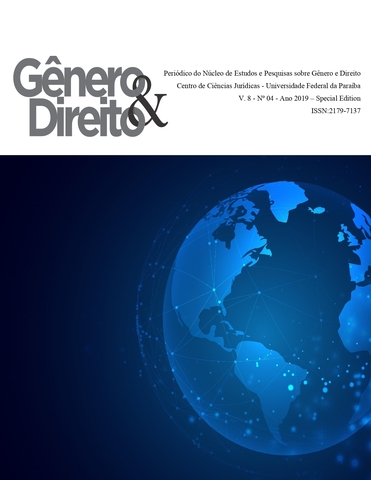ECONOMIC EDUCATION: THE ROLE OF THE STATE IN NATIONAL ECONOMIC SYSTEM
DOI:
https://doi.org/10.22478/ufpb.2179-7137.2019v8n4.48381Palavras-chave:
state, organization, self-organization, economic system, property, transaction costs, efficiencyResumo
The paper examines the role and core functions of the state in the system of vertical and horizontal linkages between economic actors and government, which are connected due to the exchange of activity and its results. The concepts of organization and self-organization are considered as the essential characteristics of structural ties in the national economic system. It is acceptable that the mechanism of self-movement of the economic system is based on provoking changes at different levels of organizational relations. The main theoretical approaches to the role of the state which are based on the theory of social contract and the theory of exploitation are analyzed. It is proved that in both theories the state is empowered to establish and redistribute property rights either in accordance with the interests of members of society or in accordance with the interests of the governing group. It was concluded that the tasks of the state are contradictory in the national economic system. Such conclusion is based on the need to define a set of property rights that would maximize the aggregate product of society. On this basis, the relationship between the theories of state and law is shown. Particular attention is paid to assessing the effectiveness of the state as the central institution of the economic system and the main criteria for protecting property rights. It is determined that when choosing the methods of legal protection of property rights, the main point is criterion of economic efficiencyDownloads
Referências
A.D.Ursul. Nature of Information. Philosophical essay. M, 1968, p. 94.
M.I. Setrov. Principle of system and its basic concepts. – "Problems of methodology of system research", pp. 53-54.
The economics of property rights. Ed. by Furudoth E. G., Pejovich S., Cambridge, 1974. Р. 169.
Nutzinger H. G. The economics of property rights: a new paradigm in economic science? / In: Philosophy of economics. Ed. by Stegmuller W., Berlin, 1982. Р. 174.
North D. C. Structure and change in economic history.-N. Y., 1981. Р. 21.
North D. C. Structure and change in economic history.-N. Y., 1981. Р. 22.
Barzel Y. Measurement costs and the organization of markets / «Journal of Law and Economics», 1982, v. 25, N
Schweizer U. Externalities and the Coase theorem: hypothesis of result? / «Journal of Institutional and Theoretical Economics», 1988, v. 144, N 2. Р. 93.
Calabresi G., Melamed D. C. Property rules, liability rules, and inalienability: one view of the cathedral / «Harvard Law Review», 1972, v. 85. N2.
North D. C. Structure and change in economic history.-N. Y., 1981. Р. 24

